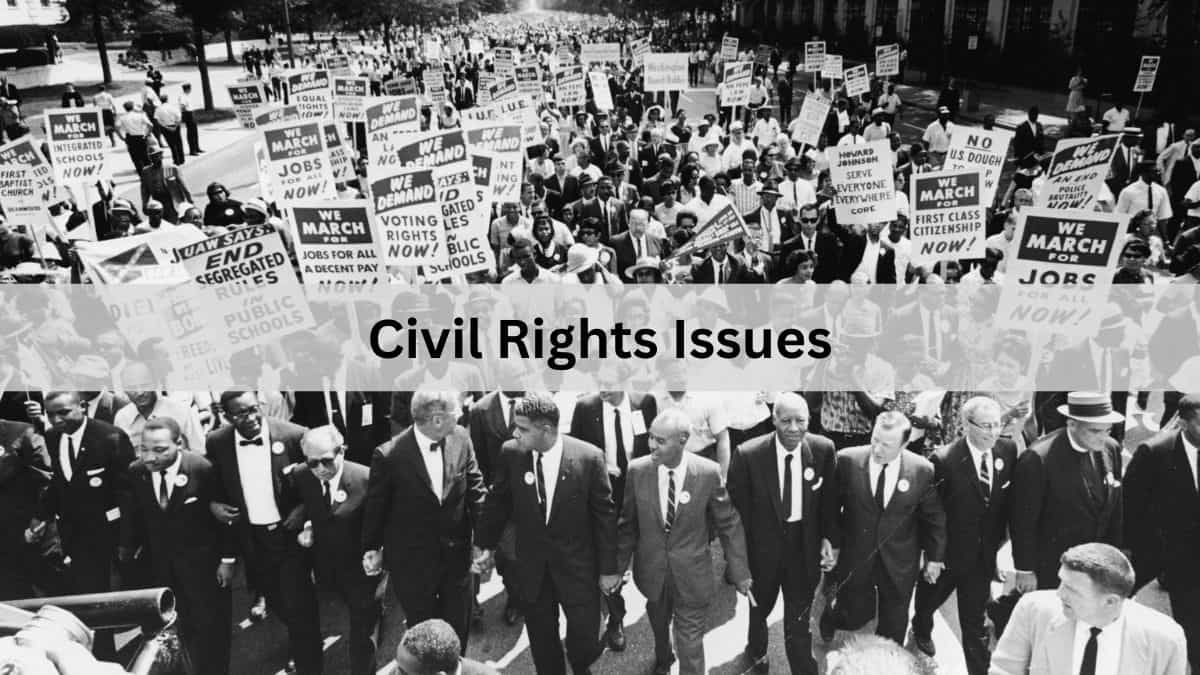Civil Rights Issues – Understanding Key Challenges Today!
Introduction to Civil Rights
Civil rights are fundamental rights and freedoms that every individual is entitled to, regardless of race, ethnicity, gender, religion, or other characteristics. These rights are protected by law to ensure equality and prevent discrimination in various aspects of life, including employment, education, housing, and public accommodations.
Current Civil Rights Issues
1. Racial Discrimination
Racial discrimination remains a pervasive issue globally, despite legal protections. People of color often face systemic barriers in accessing opportunities such as employment, education, healthcare, and housing. Discriminatory practices and racial profiling continue to challenge efforts towards equality and justice.
2. Gender Equality
Gender equality is another critical civil rights issue, encompassing equal pay, reproductive rights, and freedom from gender-based violence. Women and gender minorities advocate for fair treatment and representation in leadership roles, challenging traditional norms and stereotypes that perpetuate inequality.
3. LGBTQ+ Rights
LGBTQ+ rights encompass the fight for equal treatment and protection against discrimination based on sexual orientation and gender identity. Issues include marriage equality, workplace discrimination, access to healthcare, and legal recognition of non-binary and transgender individuals.
4. Disability Rights
Disability rights advocate for equal opportunities and accessibility for individuals with physical or mental disabilities. This includes accessible infrastructure, accommodations in education and employment, and protection from discrimination in all aspects of public life.
5. Immigration Rights
Immigration rights focus on protecting the rights of immigrants and refugees, including fair treatment, due process, and access to essential services. Issues include deportation policies, detention conditions, family separation, and pathways to citizenship.
Legal Framework and Advocacy
1. Civil Rights Laws
Key legislation such as the Civil Rights Act of 1964 in the United States and similar laws globally provide legal protections against discrimination based on race, color, religion, sex, national origin, age, and disability. These laws empower individuals to seek justice and hold accountable those who violate civil rights.
2. Advocacy and Activism
Civil rights movements and advocacy organizations play a crucial role in raising awareness, mobilizing communities, and lobbying for policy changes. Grassroots activism, legal challenges, and public education campaigns contribute to progress in advancing civil rights and promoting social justice.
Challenges and Progress
1. Persistent Challenges
Despite legal protections and advocacy efforts, civil rights issues persist due to systemic inequalities, biases, and resistance to change. Addressing deep-rooted discrimination requires sustained commitment from governments, organizations, and individuals.
2. Achievements and Milestones
Progress in civil rights has been marked by landmark court decisions, legislative reforms, and increased public awareness. Achievements include advancements in marriage equality, anti-discrimination policies, and greater representation of marginalized groups in various sectors.
Conclusion
Understanding civil rights issues is crucial for fostering a society that values diversity, equality, and justice for all. By addressing systemic discrimination and advocating for inclusive policies, we can create a more equitable world where every individual’s rights are respected and protected.



